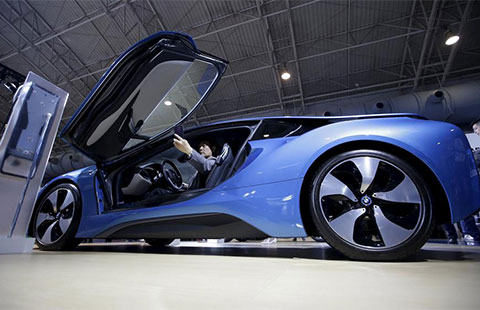China should support labor-intensive industries: economist
By Cai Xiao (chinadaily.com.cn) Updated: 2012-11-19 22:26To decrease the income gap and improve wealth distribution, China needs to develop an economy based on the country's comparative advantage, a former World Bank chief economist said on Sunday.
"The comparative advantage of China is in our labor-intensive industries including agriculture, manufacturing and services, in which lots of people work and receive income," said Justin Yifu Lin at the Financial Street Forum in Beijing.
By 2020, China's 2010 GDP and per capita income will double, according to a report former CPC General Secretary Hu Jintao delivered at the 18th National Congress of the Communist Party of China.
Since the reform and opening-up policy, which began in 1979, China has paid attention to developing labor-intensive sectors and has largely promoted economic development and increased people's wealth.
But the income gap widened, and a main reason was that China continued to protect most State-owned enterprises as it did before 1979.
Lin said that removing protection and subsidies for State-owned companies in capital-intensive sectors is urgent. If those companies continue to enjoy low taxes and monopolize some service sectors, the improvement of income distribution will be negatively impacted.
"In the financial sector, we need to liberalize interest rates so that depositors can get higher returns," said Lin.
"It's also important to develop a financial system centered on regional small and medium-sized financial institutions, which will provide funds and services to small and medium-sized companies in labor-intensive sectors," he added.
Lin said that China still has the potential to grow at 8 percent a year for the next 20 years. To take advantage of this potential, China must maintain social stability, which requires the nation to improve its distribution of income and eradicate corruption.
- COSCO competes to build cruise business of Xisha Islands
- Asian investors alter skyline of Los Angeles, enter retail businesses
- Top 10 largest public companies in 2016
- Haldor Topsoe to work with China to reduce car emission
- Markets remain cautious due to global uncertainties
- More investment on VR content expected: Expert
- Sunway-TaihuLight outperforms Tianhe-2 as world's fastest supercomputer
- Wider yuan fluctuations unavoidable: Central bank paper


















